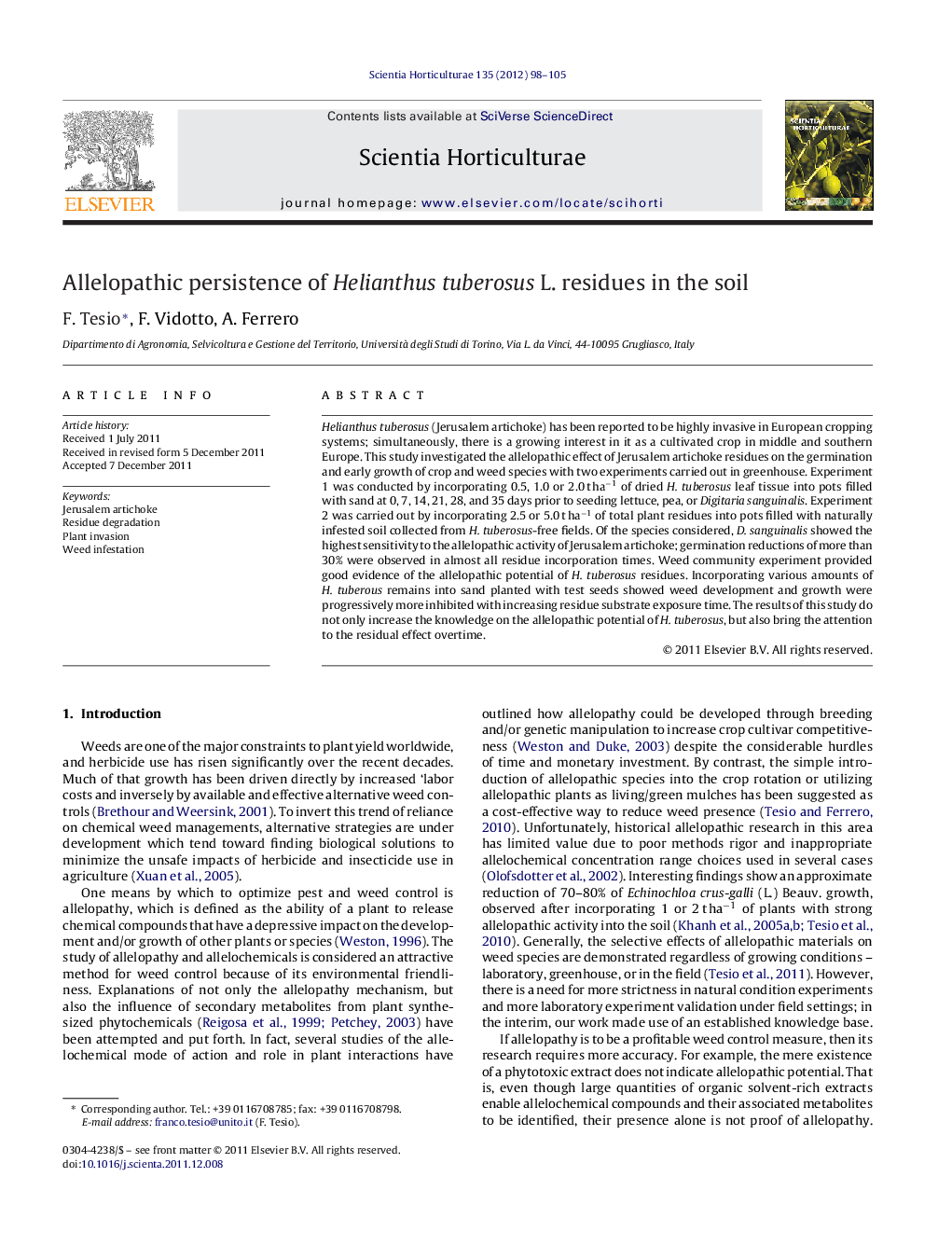| Article ID | Journal | Published Year | Pages | File Type |
|---|---|---|---|---|
| 4567830 | Scientia Horticulturae | 2012 | 8 Pages |
Helianthus tuberosus (Jerusalem artichoke) has been reported to be highly invasive in European cropping systems; simultaneously, there is a growing interest in it as a cultivated crop in middle and southern Europe. This study investigated the allelopathic effect of Jerusalem artichoke residues on the germination and early growth of crop and weed species with two experiments carried out in greenhouse. Experiment 1 was conducted by incorporating 0.5, 1.0 or 2.0 t ha−1 of dried H. tuberosus leaf tissue into pots filled with sand at 0, 7, 14, 21, 28, and 35 days prior to seeding lettuce, pea, or Digitaria sanguinalis. Experiment 2 was carried out by incorporating 2.5 or 5.0 t ha−1 of total plant residues into pots filled with naturally infested soil collected from H. tuberosus-free fields. Of the species considered, D. sanguinalis showed the highest sensitivity to the allelopathic activity of Jerusalem artichoke; germination reductions of more than 30% were observed in almost all residue incorporation times. Weed community experiment provided good evidence of the allelopathic potential of H. tuberosus residues. Incorporating various amounts of H. tuberous remains into sand planted with test seeds showed weed development and growth were progressively more inhibited with increasing residue substrate exposure time. The results of this study do not only increase the knowledge on the allelopathic potential of H. tuberosus, but also bring the attention to the residual effect overtime.
► Helianthus tuberosus residues inhibit germination and seedling growth of pea, lettuce and particularly Digitaria sanguinalis. ► H. tuberosus allelopathic potential observed on natural weed community with incorporated residues. ► Inhibition maintained over time.
